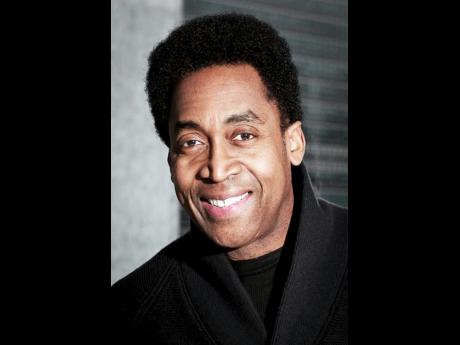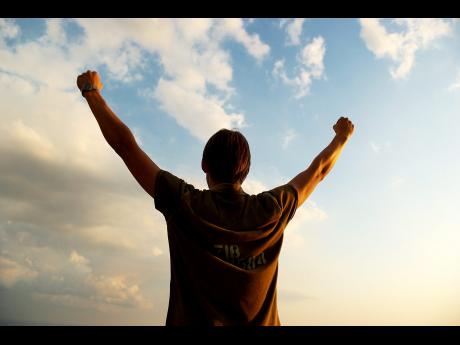Religion & Culture | Boukman's prayer that triggered the Haitian Revolution
Dutty Boukman was a maroon, revolutionary, and the spiritual leader who led his followers in prayer just before they launched the only successful slave revolt in history. The site was Bois Caiman, Haiti. The date: August 13-14, 1791.
His famous prayer reads:
"The god who created the earth; who created the sun that gives us light. The god who holds up the ocean; who makes the thunder roar. Our god who has ears to hear. You who are hidden in the clouds, who watch us from where you are. You see all that the white has made us suffer. The white man's god asks him to commit crimes. But the god within us wants to do good. Our god, who is so good, so just, He orders us to revenge our wrongs. It's He who will direct our arms and bring us the victory. It's He who will assist us. We all should throw away the image of the white men's god who is so pitiless. Listen to the voice for liberty that speaks in all our hearts."
Boukman was said to be a hougan (sorcerer). Others said that he was Muslim. The term sorcerer (from the Latin word, sotarius, means one who determines his fate) and does not connote any devilish form of religious practice.
Rather, it signifies a deep understanding of the divine properties embedded in every modicum of creation. It is an understanding of the source of all matter. Many argue that Boukman was essentially a deist, meaning that he mastered the laws cruel governing nature to ultimately win freedom for his people.
Regarding Boukman's possible Islamic roots, we know that many Muslims were also snatched from the continent. Still, we should not niggle over his identity. What we know for sure was that he rejected the god of the Christians.
It was Boukman who also stated: "You want to win? Caste aside your white god. Embrace your African Spirit. You are Free."
Clearly, Boukman's prayer at Bois Caiiman challenges Christianity and sets the stage for a climactic battle between the forces of good and evil. In this showdown, the African was good, a construct that was inconceivable at the time, and even today.
CRUEL GOD
Boukman's bifurcated view of life is supported by his prayer. His god is pious while the god promoted in the Bible warrants pity and disdain. The Christian god, according to Boukman, is narcissistic, divisive, and cruel.
We don't know for sure if Boukman's prayer was one that he oftentimes recited or if it was performed extemporaneously during that historic night.
Either way, his words expressed knowledge of an impartial god that encompassed all of life and a god that will correct the scale of imbalance when implored. Boukman's god is just. Was there any justice in slavery, he must have asked? What manner of god could justify the exaltation of one group at the expense of others?
Did Boukman know of the Bible? We know that he was literate and taught others to read. Even if he had not read the Bible, the treatment meted out by his Christians masters spoke volumes of their religious beliefs.
How could Boukman ever approach the racist, infanticidal, genocidal, filicidal god of the Old Testament for mercy? Clearly this god had no concern for African suffering. He had already chosen his people.
And what of Christian salvation? Why didn't he pray to Jesus for deliverance, for freedom? But why should he? I am sure he, and his many followers, poised to overthrow white supremacy, had, at one time, called the Christian Messiah as they were forcibly told to do.
But to what avail? He never responded. His silence was not only deafening, it was revelatory. Boukman needed to call on his own god, the god he remembered from oral tradition, not the god of the Israelites or the god of the Jews.
"My god] will assist us," Boukman intones. His god is just and will relieve their suffering. "He orders us to revenge our wrongs."
Moreover, he understood that only a false god will state that man has dominion over the earth. Boukman, the deist, believed that we must live harmoniously with the earth, for all therein is precious and those who violate this principle will be defeated.
Recited with fervour against the backdrop of a bonfire that lit up the blackness of the night and accompanied by intense drumming and a blood sacrifice (the metaphysical properties of offerings were clearly understood), a mercurial and energetic force unmatched by his Christian oppressors was unleashed.
What followed was a stunning victory (against all odds) that reshaped the destiny of a people and a region. Yes, Boukman spoke to God at Bois Caiman. And God, the true God, answered.
- Dr Glenville Ashby is the award-winning author of the audiobook 'Anam Cara: Your Soul Friend and Bridge to Enlightenment and Creativity'. Feedback: glenvilleashby@gmail.com or follow him on Twitter@glenvilleashby



